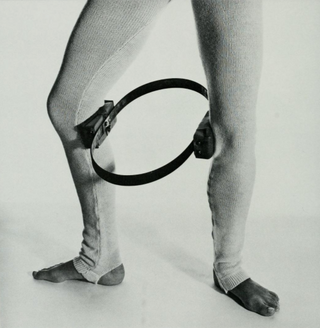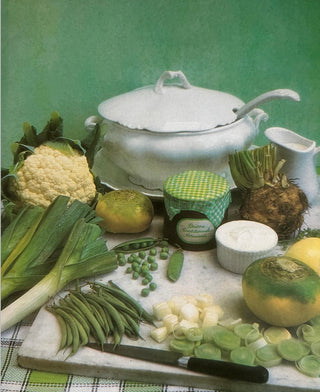
By: @drmelissa.co
What I eat in a day is a topic I consistently am asked about and I often hesitate to share because no two people are alike and I believe there is no one-size fits all approach when it comes to diet and overall health. What works for me may not work for anyone else. I do, however, try my best to practice what I preach, and generally what and how I eat is very similar to what I often prescribe in my practice.
I am generally not a fan of wellness trends and instead believe that overall consistent, healthy patterns are a path to optimal health. I do advocate for doing your own research and looking to trusted, well-researched resources like textbooks and medical journals, not tiktok and other social media. Moreover, creating a circle of care including practitioners from both Eastern and Western medical backgrounds who can tailor a diet specifically to you and your unique needs and medical history.
My diet and lifestyle are ever changing to adapt to my needs as I age and as I move through different phases of my life. I consult with my own naturopathic doctor, traditional Chinese medical doctor, family medical doctor, amongst other providers I have in my circle of care. I do regular screening blood work and specialised testing as needed to assess whether or not my system’s needs are being met. I try to adopt flexibility and balance when it comes to my diet, and am never too hard on myself. If I find myself slipping into poor habits, I reach out to my practitioners for assistance.
A priority for me is also enjoyment and connection around food. Food is fuel but also a source of deep nourishment physically, emotionally, and spiritually. I try to eat with the seasons, and select local, organic foods where possible. I do my best to cook my own meals and eat in good company. I also like to have fun and try new things, and will indulge with friends and family on special occasions without a second thought.
See below for a sample of what a typical day may look like for me.
On Waking:
I typically start my day by hydrating. I usually aim for about one litre of filtered or spring water, always room temp or warm, sometimes with a quarter of a lemon. Steeping the lemon in the water provides beneficial essential oils from the rind which can stimulate digestion and the liver. Choose organic lemons or slice off the outer layer of the skin to avoid pesticide exposure. I find this helps my skin, energy levels, and digestion.
Breakfast:
My aim is always to eat breakfast within 90 minutes of rising. I typically opt for warm, savoury breakfasts to promote digestion and balance my blood sugar. This also promotes energy, balances mood and hormones, reduces cravings later in the day, and enhances my productivity.
A favourite of mine is two organic eggs, sautéed greens leftover from dinner the night before, organic berries, and a slice of buckwheat or seed bread (like the life-changing loaf by My New Roots - this recipe is delicious) with a generous drizzle of extra virgin olive oil. Occasionally I will have an organic matcha green tea or a decaffeinated coffee. Tip: if I choose to consume caffeine, I only do this with or after food, never on an empty stomach.
I also avoid my phone until after breakfast if possible. Our diet is all about what we eat and also what we consume in terms of content, who we surround ourselves with, and our environment.
Lunch:
I try to always break for lunch around the same time. I take 30 to 60 minutes away from screens and my desk to sit and eat my meal with little to no distraction to promote digestion. If I am not working, I try to do this with family.
This meal almost always includes a form of protein, healthy fat and vegetables. I try to keep this meal really simple so I am fuelled for my afternoon. A go-to would be leftover roasted salmon with sautéed broccoli and garlic over steamed rice. Sometimes it’s chicken breast from an organic roasted chicken I buy at my local butcher with sautéed spinach, roasted sweet potato and a generous drizzle of extra virgin olive oil. In the winter, I will do a big batch of homemade chicken bone-broth soup and will bring a thermos of this for lunch. It is so nourishing and gentle on the gut.
I will usually follow this with an organic herbal tea. Currently I have been doing nettle or something calming like chamomile lavender.
Afternoon Snack:
I typically avoid snacking and “intermittent fast” between meals (this is great for blood sugar, digestion and hormone balancing) but at around the 3-hour mark, I sometimes need a little something to get me through the rest of my day at work. I also drink plenty of water between meals – often the body interprets dehydration as hunger. When I am well hydrated, I am not as hungry between meals.
If I do snack, common options include a few dates and a small handful of walnuts, a few squares of extra dark chocolate with almonds, or hummus and raw veggies.
Dinner:
This meal is similar to lunch in that it always contains protein, healthy fat and vegetables. Usually it's homemade and very mediterranean. I will always eat dinner with family or friends, away from screens.
At least once a week I will make pasta in a bolognese sauce made with an organic ground beef or a blend of ground beef and organ meats - this is great for women in particular because of the iron and high mineral content of the organ meats, and the flavour is concealed in the sauce! I sometimes opt for a fibre-rich pasta like chickpea or lentil pasta, and always add fresh or dried herbs like basil and parsley for added nutrition and flavour. I like to add a side vegetable like broccoli, asparagus, kale, spinach — or other greens that are in season. Other nights it will be grilled fish or meat, roasted potatoes, with a salad of mixed greens, cucumber, and/or tomato with a buffalo cheese, olives, olive oil and sea salt.
After dinner I always do an organic peppermint tea to support digestion and help my body begin to wind down. If I crave something more in the evenings, usually this is telling me I did not eat enough at my meals (especially protein). Occasionally though, I will have some organic popcorn made with coconut oil, a small scoop of sorbet, or homemade crumble - I make this using fruit that is in season (currently, peaches), and fibre-rich ingredients for the topping including oats, almond flour, shredded unsweetened coconut, walnuts, coconut oil, and cinnamon.
I try to eat dinner at least three hours away from bedtime if I can; this is a great practice to support digestion and restful, healing sleep.
As always, seek the guidance of a licensed health care provider to assist you in crafting a diet that is individualised based on your medical history, and is appropriate for you and your caloric + nutritional needs.















